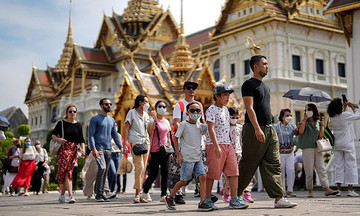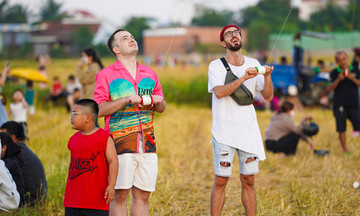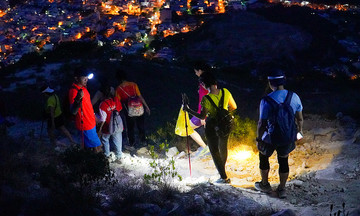The guidelines, available in Korean, English, and Chinese, inform international tourists about local regulations and customs. The island's government has printed 8,000 copies, outlining punishable offenses, including smoking in prohibited areas, jaywalking, littering, and harming the environment.
Administrative fines can reach 50,000 won (approximately 850,000 Vietnamese dong or 36 USD). The guidelines emphasize that violating these rules can result in imprisonment for misdemeanors or administrative fines.
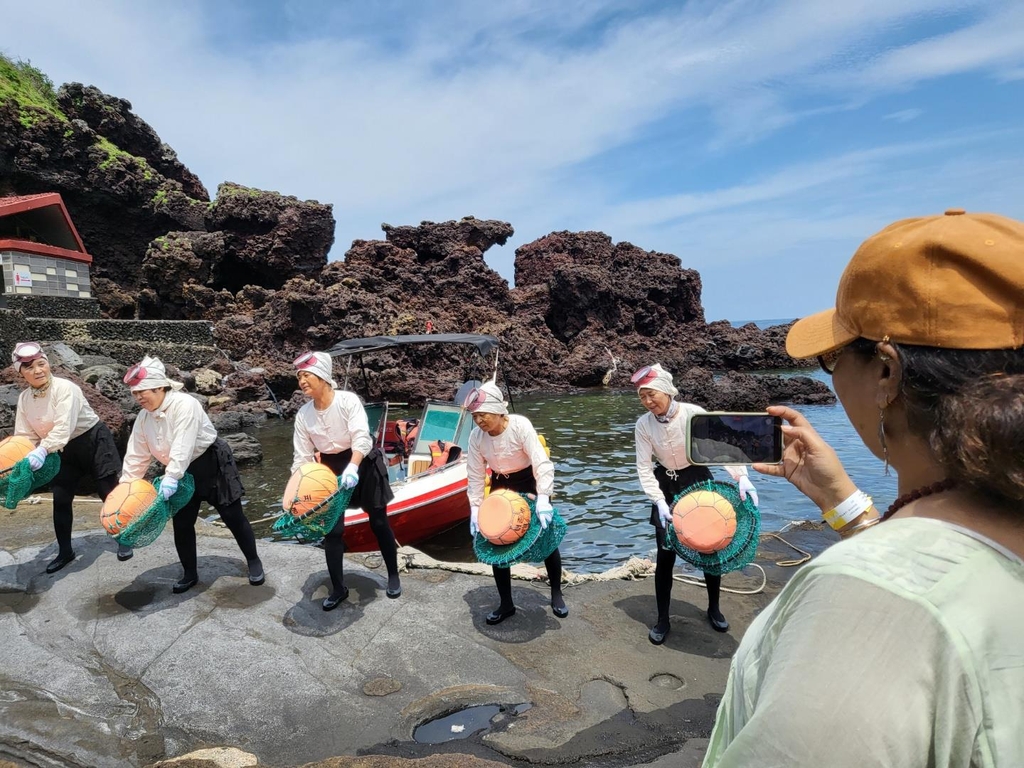 |
Tourists learn about the work of haenyeo (female divers) in Jeju. Photo: Hankyung |
Tourists learn about the work of haenyeo (female divers) in Jeju. Photo: Hankyung
According to the International Air Transport Association's (IATA) 2024 World Air Transport Statistics report, the Seoul-Jeju route is currently the world's busiest, with over 13 million passengers last year.
International arrivals to Jeju have almost quadrupled since the pandemic's end, reaching 1.9 million in 2024, according to the Jeju Tourism Association. Locals have begun complaining about tourists' unruly behavior, with some sharing their frustrations on social media. In April, a viral video showed a tourist smoking on a bus in Jeju, sparking outrage among Korean netizens.
"Deport and fine that person immediately. If they don't pay the fine, ban them from buying plane tickets," one user commented under the video posted on Instagram.
Last summer, an image of a foreign child defecating on a Jeju sidewalk also sparked online anger, with many calling for increased fines for international tourists.
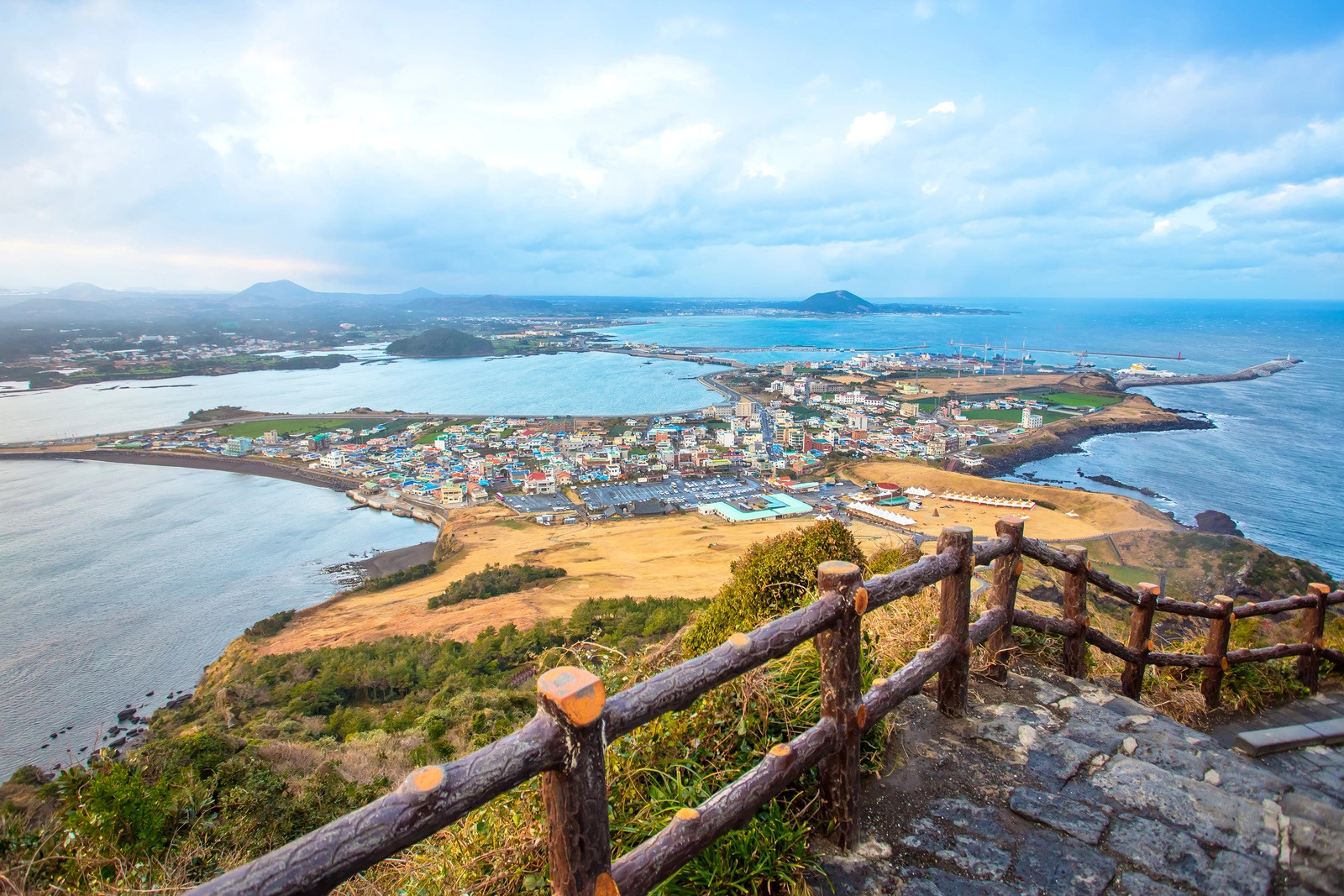 |
Jeju Island scenery. Photo: Visit Jeju |
Jeju Island scenery. Photo: Visit Jeju
Jeju isn't the only destination in the region facing challenges from overtourism. Bukchon Hanok Village in South Korea implemented a strict curfew for non-residents last year after residents complained about noise.
Japan has long issued etiquette guidelines and warned international tourists about inappropriate behavior. Last year, Kyoto's Gion district took action to prevent tourists from photographing geisha in restricted areas. Bali, a popular Indonesian destination, has also faced issues with tourist misbehavior for years.
In Europe, discussions about the consequences of overtourism have exploded. In Spain, Greece, and Italy, locals have taken to the streets in protest. Last summer, images of Barcelona residents spraying tourists with water guns went viral. This year, protests have continued in Spain and Italy, including Venice. In Paris, Louvre Museum staff staged a wildcat strike to protest unmanageable crowds.
Ruben Santopietro, CEO of Visit Italy, a tourism marketing company, believes respecting locals is as important as managing tourist crowds.
"A city can't function well if its residents feel unhappy, marginalized, their local identity fading, and their neighborhoods 'touristified'," he told CNN.
Mai Phuong (According to CNN)



